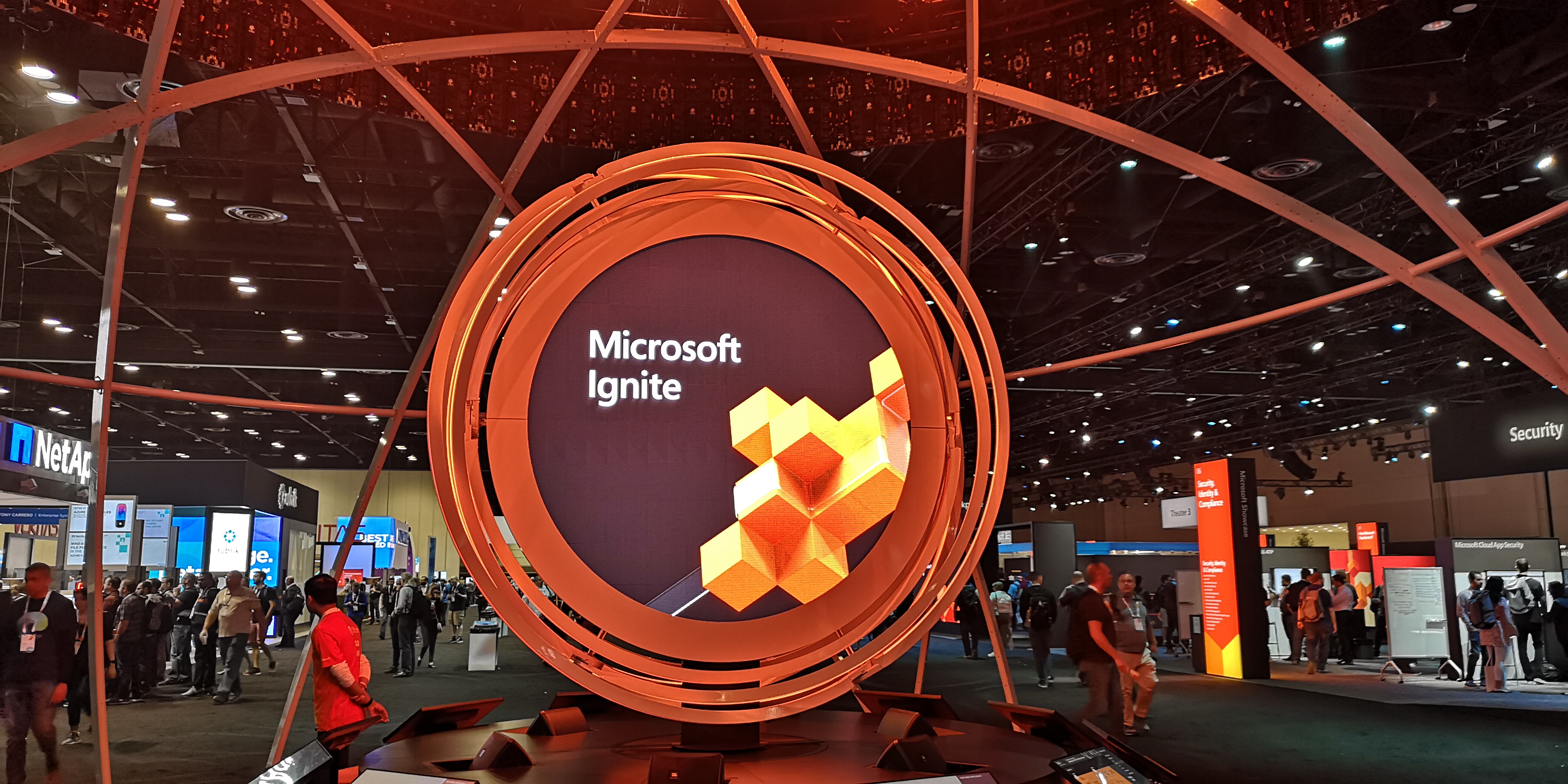View from the airport: Microsoft Ignite 2019
After a conference full of pragmatism, compromise and humble pie, it’s time Microsoft went back to basics

Sign up today and you will receive a free copy of our Future Focus 2025 report - the leading guidance on AI, cybersecurity and other IT challenges as per 700+ senior executives
You are now subscribed
Your newsletter sign-up was successful
Microsoft's enormous flagship Ignite conference is now over for another year, but the roadshow has only just started – the company is set to visit a total of 30 different countries between now and mid-April 2020.
It was perhaps the largest conference I had ever attended personally, and featured a massive number of updates across its software and cloud portfolio. Major highlights include a new hybrid cloud platform dubbed Azure Arc, a new strategy and look for its Edge browser, and a raft of updates for its Teams suite.
What struck me most, however, was Microsoft's pragmatic attitude to both its investments and long-term goals. Whether the result of shrewd thinking or simply a realisation that the market isn't where the company wants it to be, Microsoft is looking to compromise.
Perhaps the most prominent example of this was in its security content. Ignite's security and compliance keynote – the first of its kind for Microsoft – was packed with updates across Microsoft's portfolio. However, despite the announcements, Microsoft wanted attendees to leave with 3 simple rules to follow: Turn on MFA, stay up to date, and use SecureScore (the company's built-in compliance tool).
In fact, speaking with executives after the show, I learned that these rules had been baked into every security presentation across the week, some 21 sessions. Every presenter was told to include one last slide that reminded users to turn on MFA.
It's a self-confessed compromise from a company that has spent a number of years trying to pivot its customers towards passwordless security. In the words of Alex Simons, corporate vice president for Microsoft's Identity division, this is "the new Microsoft, it's a little bit more empathetic".
Passwordless remains an incredibly important part of Microsoft's security strategy, but it's clear that this goal is still some distance away – at least three years according to Simons. While it's managed to onboard over 100 million of its users to things like biometric security, it still has around 700 million left to go. It's clear that customers aren't quite ready to completely change their own approaches to security. Whether that's due to the complexity of legacy hardware, or simply a reluctance to change, the company isn't quite meeting its customers where they are.
Sign up today and you will receive a free copy of our Future Focus 2025 report - the leading guidance on AI, cybersecurity and other IT challenges as per 700+ senior executives
It's clear then why Microsoft is now making its MFA tool free for every user – it's a reluctant nod to customers, saying: "If you're going to use passwords, at least do it properly".
The same can be said for Microsoft's ambition for its Edge browser. The industry was eager to see what the company would do with its modernised platform, having just moved to the Chromium source code. It was never going to be enough to say that Edge now has parity with Google Chrome over things like compatibility and performance. Microsoft knew that, and from the way Edge is now being sold it seems the company is no longer trying to compete with rivals that are too far ahead in the race.
Instead, the company has taken quite a bold, and potentially innovative, step to try and fuse together the capabilities of a web browser with the data of a company's intranet. Edge is now pitched as a business companion tool that quite frankly could make the browser relevant again in the market.
Microsoft has had a difficult year, no more so than with a Windows platform that's been plagued with bugs and shoddy launches. Those experiences, backlash from customers and its growing irrelevance in certain markets seems to have humbled the company, and so it's now time to start meeting customers where they are, rather than telling them where they need to be.
Dale Walker is a contributor specializing in cybersecurity, data protection, and IT regulations. He was the former managing editor at ITPro, as well as its sibling sites CloudPro and ChannelPro. He spent a number of years reporting for ITPro from numerous domestic and international events, including IBM, Red Hat, Google, and has been a regular reporter for Microsoft's various yearly showcases, including Ignite.
-
 AWS CEO Matt Garman isn’t convinced AI spells the end of the software industry
AWS CEO Matt Garman isn’t convinced AI spells the end of the software industryNews Software stocks have taken a beating in recent weeks, but AWS CEO Matt Garman has joined Nvidia's Jensen Huang and Databricks CEO Ali Ghodsi in pouring cold water on the AI-fueled hysteria.
-
 Deepfake business risks are growing
Deepfake business risks are growingIn-depth As the risk of being targeted by deepfakes increases, what should businesses be looking out for?